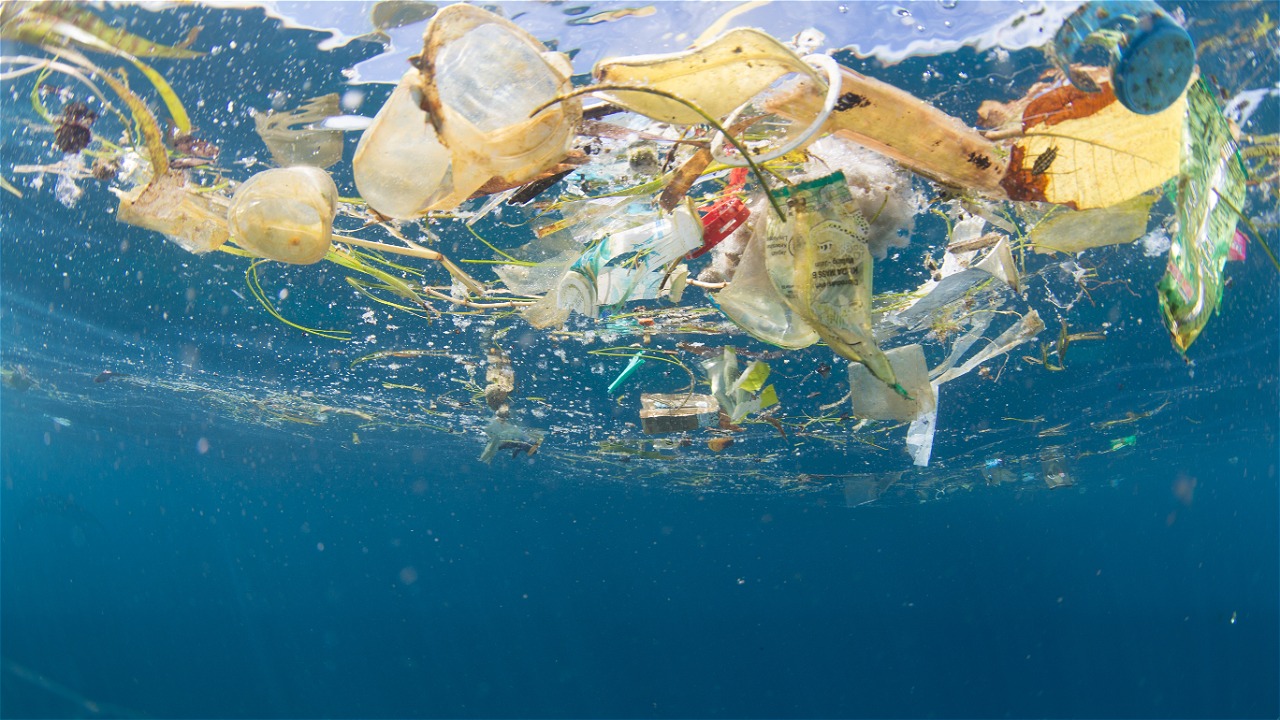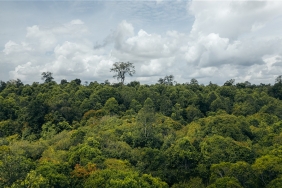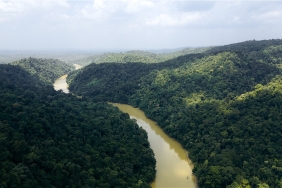BUMI PANDA INVITES HIGH SCHOOL STUDENTS TO DISCUSS WASTE AND ITS MANAGEMENT
By: Kesia Amelia (Earth Panda Volunteer) and Natalia T. Agnika
The waste problem is not just the responsibility of the government or a group of people. Everyone, including students, should care about the waste problem and how to solve it. For this reason, during its visit to SMAN 12 Bandung on Wednesday (20/01), WWF-Indonesia's Bumi Panda team invited students at the school to discuss waste.
Exactly at 10:00 a.m., 220 students from grades X to XII filled the laboratory room to participate in the activities filled by the Bumi Panda WWF-Indonesia team. After the introduction, the students from science and social studies majors were invited to have a discussion. They were divided into groups. Each group was given 30 minutes to discuss about waste. They poured the results of the discussion on a sheet of A3 paper by making articles, diagrams, and pictures about waste. The results of the discussion were presented in front of the class in turn.
Each group that came forward gave an explanation of what they knew about waste, ranging from understanding, types, how to deal with it, and how to recycle waste. "Waste can disrupt everything in this world, including animal habitats. Waste management should start from ourselves and our environment first. This can be done by sorting out organic and inorganic waste. Organic waste is used as fertilizer, while inorganic waste is recycled and reused. The world needs all of us to solve the waste problem," said Daffa, a grade XI student who presented the results of his discussion.
The discussion activity continued with an introduction to WWF-Indonesia by Sani Firmansyah from Bumi Panda WWF-Indonesia. Sani explained about WWF-Indonesia's history, work locations, and various animals that are the focus of WWF-Indonesia's conservation work. "Waste affects the habitat of animals or their ecosystems, one of which is sea turtles. Currently, one of the causes of the decline in sea turtle populations is plastic waste scattered in the sea. Sea turtles often mistake plastic for food. The turtle can die when it eats the plastic bag. So the solution is that we must minimize the use of plastic bags," said Sani in his presentation.
The students also had the opportunity to implement recycling activities directly. They were taught by the Bumi Panda WWF-Indonesia team to turn used T-shirts into multipurpose bags. The materials to make the bags have been prepared from their respective homes. The students looked very enthusiastic practicing how to make the bags. The results of their work are very good and interesting.
The atmosphere was getting warmer when the students did games around the materials that had been delivered before. They were very enthusiastic to answer various questions asked by the Bumi Panda WWF-Indonesia team. From the games, it can be seen that the information about conservation can be absorbed well by the students at SMAN 12 Bandung. "Thank you to the team from Bumi Panda WWF-Indonesia for visiting our school. We got a lot of information in a fun way. Hopefully, our students can help protect the environment, starting from their school first," said Euis, Vice Principal of Student Affairs of SMAN 12 Bandung.





